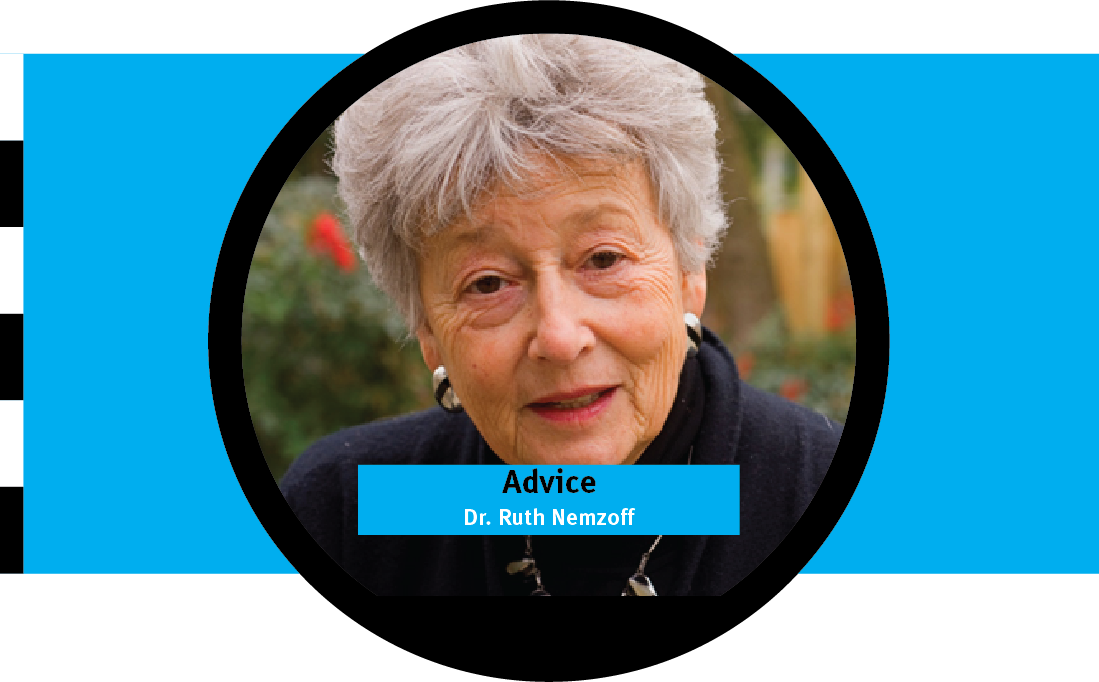In December, I wrote a column about the strain that the Israel-Hamas war was putting on secular and interfaith marriages. For some Jews, a nation that they’d never cared about nor even been to was suddenly of the utmost importance, and that was a surprise to both them and their partner. I ended the column by saying “Your partner may or may not be able to mirror your feelings, but she should at least understand why you feel this way.”
In that column, I focused on explaining why secular Jews might feel a sudden attachment to Israel, but I did not spend a lot of time highlighting the one Jewish organization solely focused on helping interfaith and intercultural couples, 18Doors. With growing numbers of interfaith couples and families within the Jewish community and the rise of antisemitism over the last decade, Jews and their loved ones have looked to 18Doors for support. In response, 18Doors began offering programs for interfaith couples, facilitating conversations about their experiences, sharing ways to support one another with love and care and developing resources.
Following October 7, 18Doors staff heard from interfaith couples who weren’t sure how to talk about their relationship to Israel, to the war and to the terrorist attacks. These couples felt isolated from one another and unsure how to approach challenging conversations about what each partner was experiencing in a constructive and caring way.
Giving space for divergent opinions and ideas, while remaining loving and caring is key, particularly around highly political issues. Jews and their partners needed to learn new ways of talking with one another, often with great difficulty, but leading to greater intimacy and respect.To be clear, not all couples found themselves on different “sides” of the war. However, many had trouble understanding why their partner cared so much for a conflict happening halfway around the world and many Jews were surprised to find they cared so deeply about the existence of Israel.
One way to begin to heal these sorts of divides is to start at the community level where interfaith couples live and seek community. Jewish clergy are key to this healing process. 18Doors has invested significantly in the professional development of rabbis across North America, most intensively through their 18-month Rukin Rabbinic Fellowship. Since 2019, 18Doors has trained 65 rabbis across denominations through this fellowship, teaching them about the diverse needs of interfaith couples and how to create communities of belonging for them.
Clergy are important, but not the only people who matter in bridging these divides. 18Doors encourages Jewish educators and other Jewish communal professionals to host conversations about Israel and the war for the interfaith couples they serve. 18Doors has modeled this by running online gatherings and panels at the national level for couples and some local events in Boston, Chicago, and Atlanta.These programs are not to educate people about Israel and the war, but rather to help interfaith couples open lines of communication across differences.
Those of us in homogeneous relationships might also be struggling with communicating our feelings towards Israel with our partners, but there are unique challenges to those in interfaith couples or intercultural relationships. The non-Jewish member may be confronting negative attitudes toward Jews for the first time. They might think their partner is paranoid and overreacting. The point of all of this is, what is happening at the individual level in interfaith relationships is a microcosm of what many of us are feeling as Jews living in America. Either partner may have thought of Judaism as only a religion and one that they rejected, only to find that they had feelings about our peoplehood. We should not pretend that Jewish-Jewish relationships are free from this strife either. Many American Jews do not know our history. They may feel threatened.
Parallel to the war is a rise in antisemitism. According to 18Doors, interfaith couples also wish to talk about how antisemitism impacts their lives, how to talk about it with their peers and extended family and how to be a loving ally against hate. Of course, not all couples are the same. Some couples communicate openly about their different experiences of hatred and how they stand up in response. Others do not. Many want to talk about how to support not just the Jewish partner, but also how the Jewish partner can support their loved one from another background who is for the first time encountering anti-semitism. Through a partnership with the ADL, 18Doors offers workshops for couples to learn about these important topics, as well as how to talk to extended family about antisemitism, or even how to respond to negative remarks made by those family members. They will roll out curriculum to other Jewish organizations later this year.
The importance of 18Doors is not that they create perfect programming that will solve all of the world’s problems. Instead, they focus on one growing segment of our community, interfaith couples, showing that the Jewish community is willing to invest time and resources into their success.
For this reason, I think we should all familiarize ourselves with how the Israel-Hamas war is affecting interfaith couples and what’s being done in our communities to support them. How do we help the grandparents who may have welcomed a Jewish in-law who suddenly is frightened for their grandchild’s safety? How do we help partners understand that being Jewis is a complex combination of religion, history and peoplehood. 18 Doors is the only national Jewish nonprofit organization solely dedicated to serving interfaith couples and families. It inspires the large numbers of our children in interfaith relationships to feel welcomed and embraced by Jewish communities. It aims to give them the knowledge and confidence so they can continue to contribute to Jewish enduring strength and continuity.
More likely than not, you are in a community with an interfaith couple, and understanding their challenges is a key part of building a strong Jewish network.


